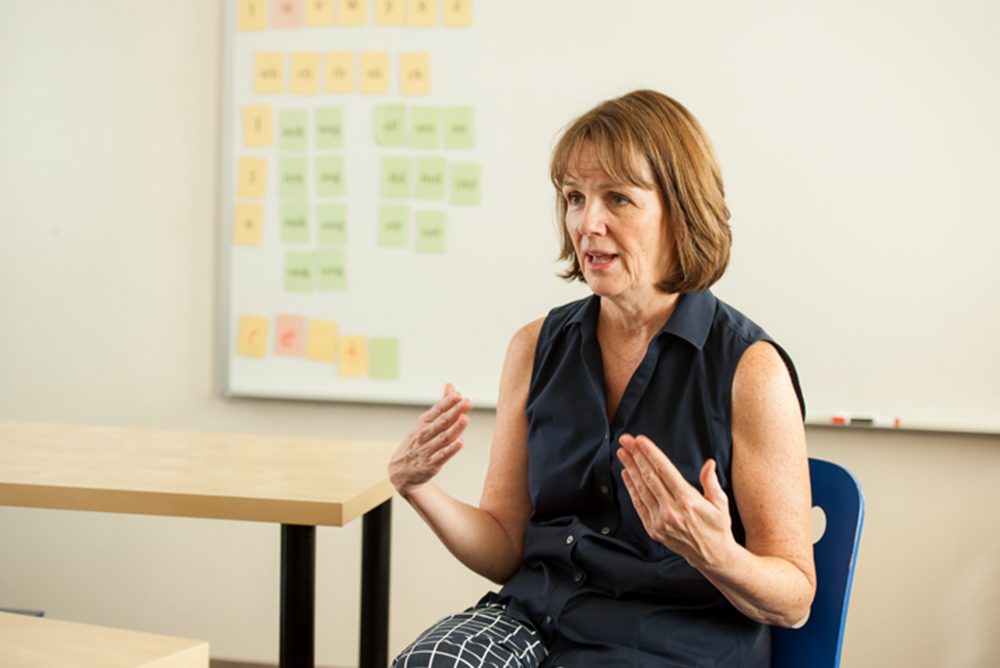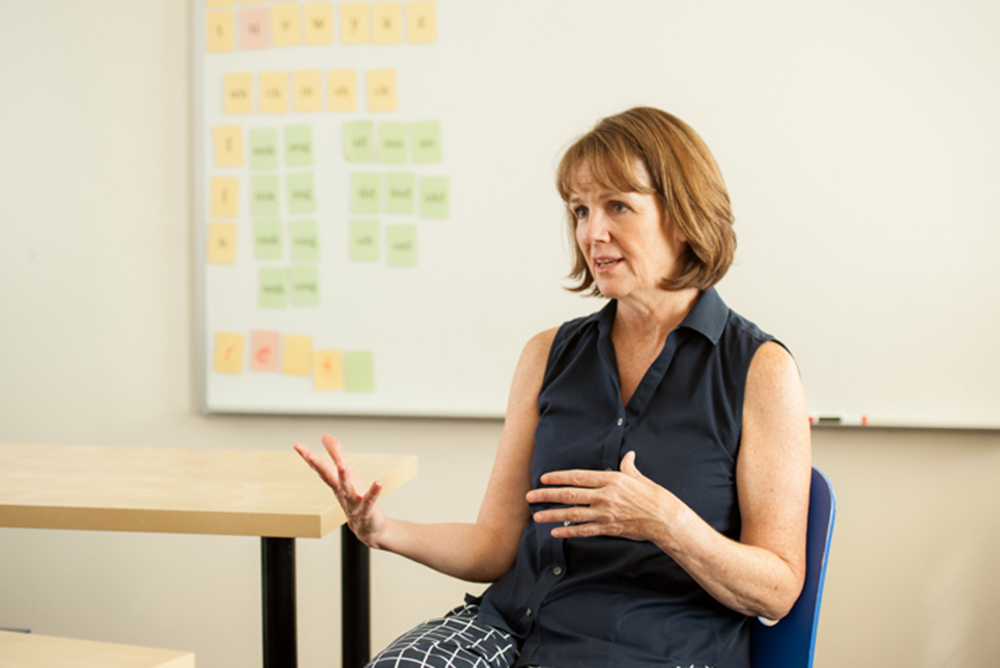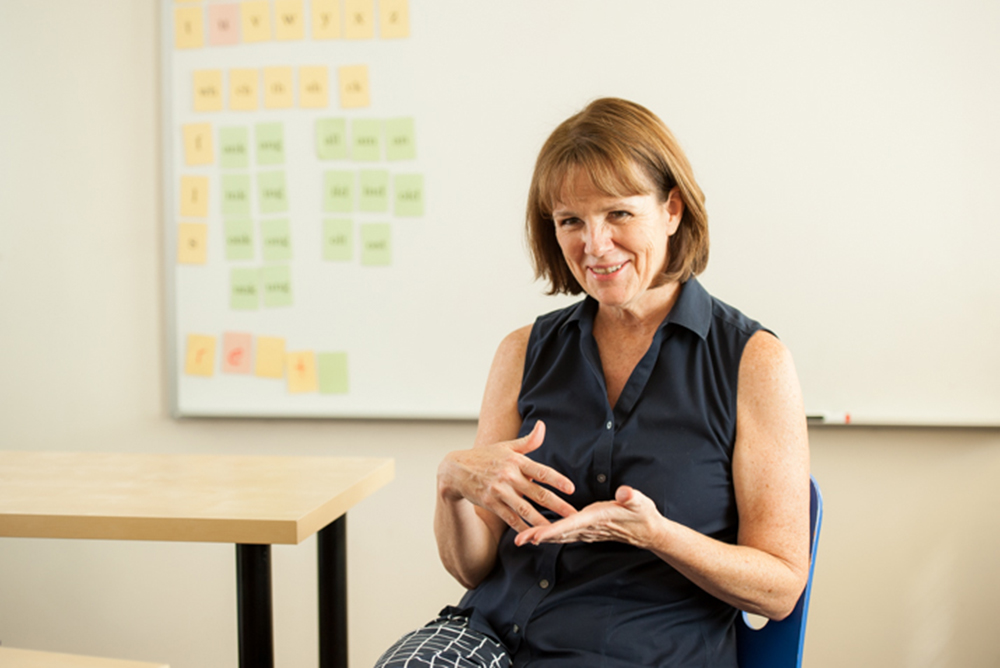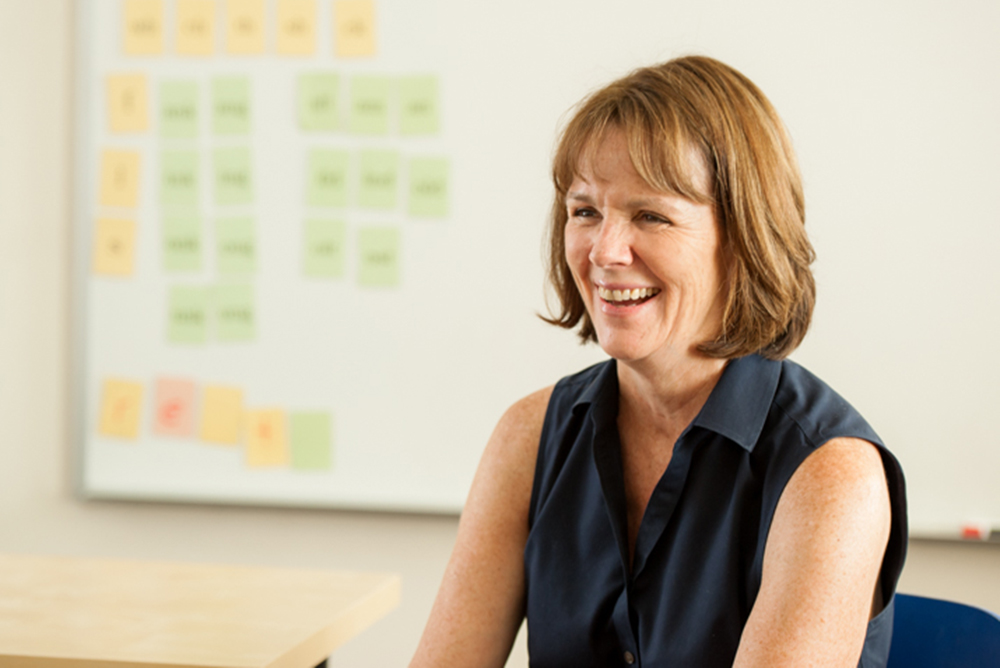Super Women: Terry Algire, Cracking the Code on Reading
I DON’T REMEMBER when I learned to read, and certainly not how I learned. And if you skim your way effortlessly through blogposts and newspaper stories, ads and celebrity tweets, you probably don’t remember either. For most of us it was just natural: One day we were “reading” “The Poky Little Puppy” upside-down, next day we were annoying our parents by reading the back of the cereal box at the breakfast table.
The people who go to Terry Algire for reading help, on the other hand, know exactly when they learned to read. “They feel they’ve suddenly cracked the code,” says Algire, who is executive director of the Washington Literacy Center, founded in 1963.
As gratifying as it is for Algire to head up a program that sees measurable results, she is sobered by the statistics: In a population of some 650,000 people, Washington, D.C., has about 90,000 adults who are functionally illiterate, unable to do such things as fill out an online job application without help. This isn’t about “digital literacy,” it’s not a Twitter deficit; it’s basic ABCs.
As Algire explains, “if we give [prospective students] our address, street names, they can’t find us. But when we tell them we’re x number of buildings away from Ben’s Chili Bowl [on U Street NW], they can do it.”
But before any of us jump to conclusions about these illiterate adults, Algire shares an interesting point: Most of the adult students are very intelligent. “They’ve spent their lives memorizing key words, figuring out what to look for on a menu. They search for clues–and they’ve been able to get into their 40s and 50s, sometimes without letting on that they can’t read.”
And because they have their own methods of figuring things out, these students often score high enough on CASAS (the Comprehensive Adult Student Assessment System)–by guessing the answers– to enter a GED program, the General Educational Development test, developed by the American Council on Education, which can pave the way to college courses and, eventually, a better-paying job. “But in fact they read on a second- or third-grade level,” Algire says. And that, she adds, may contribute to the idea that D.C.’s scholastic success rate following the GED is so low.That is why, in 2012, 801 D.C. adults completed the GED test but only 55 percent passed. Good guessing is not reading, which is definitely a requisite for higher education.
Algire was recruited to the center from Florida; it fitted her desire to be closer to Baltimore, where her sister needed help tending to their aging mother. In Florida she had become a champion of the Wilson Reading System, a teaching method developed in the 1980s in Massachusetts by Barbara Wilson, which breaks English into rules, working with “welded sounds.” Like “-all”: The students learn that there’s b-all, f-all, g-all–and sounding things out starts to make sense. The literacy center changed to the Wilson method two years ago. The mantra is “go as fast as you can and as slow as you have to” to get to mastery.
The Wilson approach brings up another statistic: To learn to read takes 200 to 250 hours in a year, experts say. Many volunteers at the center were able to give a couple of hours per week; for most students that amounted to 60 to 70 hours in a year. The literacy center began using professionally trained instructors when it embraced the Wilson method. Students now attend two-hour classes three to four times a week. But volunteers are still needed since paid troops are thin on the ground.
For a moment the soft-spoken Algire suggests that she may not be the most popular person around D.C. literacy circles. But then she adds, “We’re not here to make volunteers feel good or make ourselves feel good, but to move adults forward.”
Algire says the D.C. literacy center has increased its successful outcomes. “We can demonstrate an increase in employment” that goes along with a raised level in reading, she explains. And the Washington Literacy Center has started to “get a little recognition,” she adds. DC Appleseed Center for Law & Justice outlined the literacy center’s progress in its April 2014 report.
Some in the reading “industry” insist that it’s important to concentrate on the very young. But why, Algire says, should there be an age limit on learning? “Without [literate] adults, the children won’t succeed.”
Remember, she adds, “We come out hard-wired to speak. We do not come out hard-wired to read.”
The Washington Literacy Center is in the Thurgood Marshall Center, 1816 12th Street NW, Washington, D.C. 20009; 202-387-9029; www.washingtonliteracycenter.org.
–Nancy McKeon
 Terry Algire, executive director of the Washington Literacy Center. / Photo by Kevin Allen.
Terry Algire, executive director of the Washington Literacy Center. / Photo by Kevin Allen.  Terry Algire, executive director of the Washington Literacy Center. / Photo by Kevin Allen.
Terry Algire, executive director of the Washington Literacy Center. / Photo by Kevin Allen.  Terry Algire, executive director of the Washington Literacy Center. / Photo by Kevin Allen.
Terry Algire, executive director of the Washington Literacy Center. / Photo by Kevin Allen.  Terry Algire, executive director of the Washington Literacy Center. / Photo by Kevin Allen.
Terry Algire, executive director of the Washington Literacy Center. / Photo by Kevin Allen. 